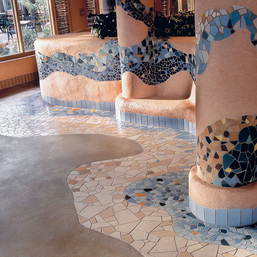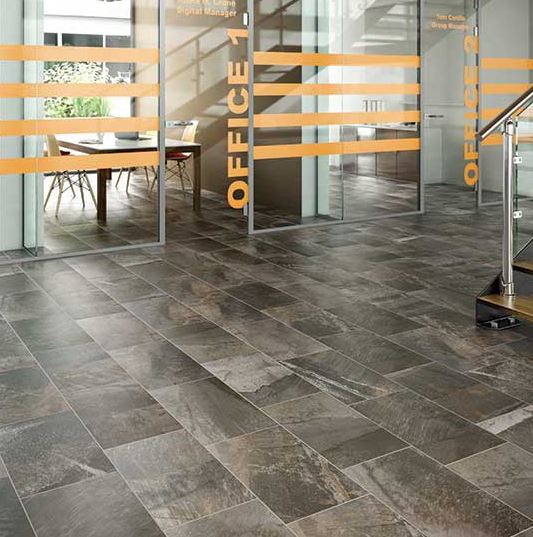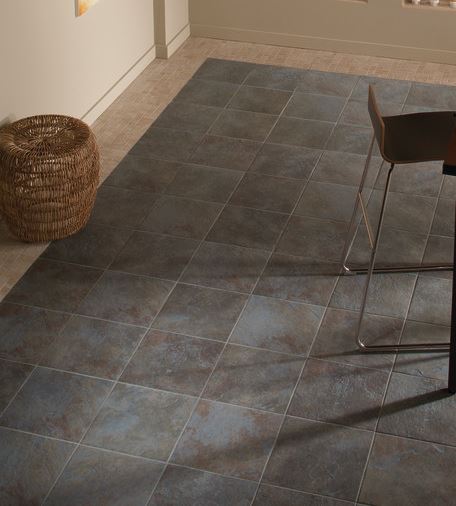Porcelain or Ceramic – Which Tile is best for your Installation?
Porcelain and ceramic are from the same family but have distinctly different usage. Both are ideal for a countless number of installations, but it’s important to understand the characteristics of each. Both tiles are created in essentially the same way (with baked clay), so density and strength become defining factors. Ceramic is manufactured with white, brown or red porous clay that is in a less refined “raw” state than clay used for porcelain. Ceramic tile is only baked “on top” and protected with a glaze so chipping or damage will be easily noticed. Conversely, the porcelain clay is almost always white, more refined and pure, and uses significantly more minerals (like kaolin and feldspar) which ultimately gives it higher density and durability. Porcelain is also baked all the way through so the color and pattern are part of the tile itself, making it more appealing in heavy use areas where it may be chipped.

Daltile Ceramic – Natural Hues
In general, ceramic tile is more likely to absorb liquid, therefore the tile may be suited for indoor areas that won’t have direct contact with water like interior walls, mosaic wall art or backsplashes. It’s also important to note that if ceramic may weaken or crack in extremely hot or cold weather situations. The less absorbent porcelain will have superior performance in high traffic areas as it’s naturally more stain resistant and can easily withstand outdoor use and weather changes. (Keep in mind that some porcelain is manufactured specifically for outdoor use so always specify your usage with our sales team.) Porcelain can be used on both walls and floors, as well as counter tops. Both types of tile are produced in an almost unlimited choice of colors and can be manufactured to mimic natural stone or wood.

Daltile Porada
During manufacturing, tiles go through a water test. Depending on how much water is absorbed (usually over a 24 hour period), the tile is weighed and based on density and absorption, the tile is classified as porcelain. From there, porcelain is given a “class” rating from 0 to 5 to determine its hardness. The higher the rating, the more durable the tile. From an installation perspective, tile installers may find ceramic easier to cut as it is inherently thinner and less dense, nonetheless both types require professional expertise.

Daltile Continental Slate Porcelain
Ask your Continental Flooring representative about available ceramic and porcelain products. We can offer materials only or complete installation services. GSA Buyers may wish to register online to view GSA pricing. This feature allows buyers quick, up-to-date access to 17 different GSA contracted manufacturers. Please feel free to call us for product advice, free samples, assistance in specifications, or to place an order. One call does it all!




